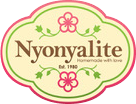满$35即享免费配送。
Pongteh is a classic Nyonya dish, deeply rooted in Peranakan food culture. Traditionally known as ayam pongteh or babi pongteh, this comforting stew is made with fermented soy bean paste, garlic, shallots, and potatoes, simmered gently with chicken or pork. The word pongteh comes from the Hokkien dialect, meaning “braised in soy bean paste.” It represents more than just a recipe. It is a symbol of home, heritage, and celebration.
In many Peranakan families, pongteh is lovingly prepared for special occasions such as Chinese New Year, birthdays, weddings, and ancestral prayers. The dish is often made in generous portions and left to rest overnight to allow the flavors to deepen. When you serve pongteh, you are not just offering food. You are sharing a taste of tradition.
Nyonyalite’s Pongteh Paste provides a rich and authentic base for this beloved stew. But just like in every Nyonya kitchen, you can add your own special touch. Here are some ways to elevate your pongteh and make it truly unforgettable.
Add Galangal for Sweet and Citrus-Like Notes
Galangal is often mistaken for ginger, but its flavor is more complex. It has a mildly spicy, piney fragrance with sweet citrus undertones. Adding a few thin slices of galangal to your stew brings a gentle brightness that balances the savory richness of the pongteh. This simple ingredient adds an extra layer of aroma that feels both traditional and refined.
Use Lemongrass to Uplift the Stew
Lemongrass is another staple in Nyonya food that pairs beautifully with galangal. When you bruise a stalk and add it to the stew, it releases essential oils that enhance the dish with a clean, zesty aroma. Lemongrass cuts through the meatiness and rounds out the flavors, giving your pongteh a more refreshing finish.
Dried or Fresh Shiitake Mushrooms: Which is Better?
Both types of shiitake mushrooms work well, but they offer different experiences.
Dried shiitake mushrooms are more fragrant and have a concentrated umami flavor that adds depth to the stew. However, they require more time to prepare. Larger Japanese varieties may need to be soaked for a few hours or even overnight.
Fresh shiitake mushrooms, on the other hand, are quicker to use. While they are less aromatic, they still absorb the rich flavors of the pongteh and add a tender, juicy texture.
Add Gula Melaka for Richer Sweetness
For a touch of natural sweetness, stir in a small amount of gula melaka. This palm sugar has a deep caramel flavor with smoky notes that complement the fermented bean paste beautifully. It not only makes the stew more flavorful, but also adds a nostalgic fragrance that feels like home.
Or Try Sugar Cane Juice for a Lighter Touch
If you prefer a fresher kind of sweetness, sugar cane juice is a wonderful alternative. It is light, grassy, and subtly sweet, with a clean aftertaste that refreshes the palate. Adding sugar cane juice to your pongteh creates a more delicate balance, making the stew feel less heavy while still flavorful.
Add Kaffir Lime Leaves to Refresh the Aroma
When stewing chicken or pork for long periods, the meat can sometimes develop a strong aroma. Kaffir lime leaves help to neutralize this while introducing a subtle citrus fragrance. Simply add two to three leaves during cooking to freshen up the stew. It’s a small addition that makes a big difference in the overall aroma and taste.
Let It Rest Overnight Like the Peranakans Do
One of the best-kept secrets of Peranakan cooking is patience. Many families prepare pongteh a day in advance, refrigerate it, and reheat it the next day. This resting period allows the flavors to fully develop. The meat becomes more tender, the potatoes absorb more sauce, and the overall stew thickens into something truly comforting. If you have the time, this method is absolutely worth it.
Final Thoughts
Pongteh is a dish that tells a story — of heritage, love, and the art of slow cooking. Whether you're making it for a weekday dinner or a special celebration, these simple enhancements help you honor the heart of Nyonya food while making it your own. From galangal and lemongrass to gula melaka and shiitake mushrooms, each ingredient brings something special to the table.
With Nyonyalite’s Pongteh Paste as your base, you’re already halfway there. All that’s left is your personal touch and a little time. Cook with care, and you’ll taste the magic of tradition in every spoonful.

